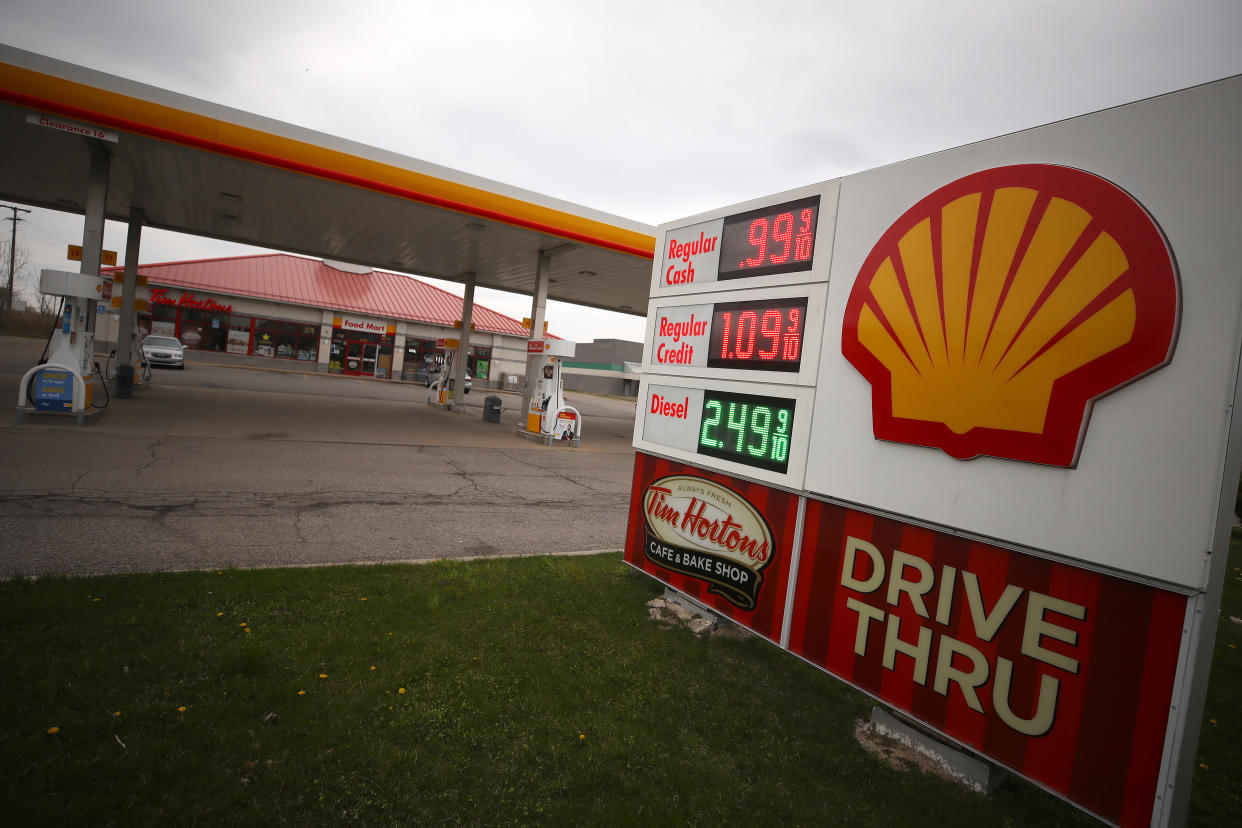Coronavirus: Shell cuts dividend for first time since World War II

Oil giant Shell (RDSB.L) has cut its dividend for the first time since the end of the World War II, as collapsing demand fuel demand batters the business.
Shell said on Thursday it was cutting its quarterly dividend by 66% to $0.16. It marks the first reduction in payout to shareholders since the time of World War II.
Shares in the company slumped 6.8% in London.
“Shareholder returns are a fundamental part of Shell’s financial framework,” chair Chad Holliday said in a statement.
“However, given the risk of a prolonged period of economic uncertainty, weaker commodity prices, higher volatility and uncertain demand outlook, the board believes that maintaining the current level of shareholder distributions is not prudent.”
The announcement came as Shell reported a slump in business in the first quarter, caused by the COVID-19 pandemic and plummeting oil prices.
Shell fell to a loss attributable to shareholders of $24m (£19.2m) in the first quarter of 2020, compared to a profit of $6bn a year earlier. Net income adjusted for cost of supply, Shell’s standard profit measure, halved to $2.7bn.
Shell chief executive Officer Ben van Beurden said the company was facing “extremely challenging conditions” as a result of the COVID-19 pandemic.
“Given the continued deterioration in the macroeconomic outlook and the significant mid and long-term uncertainty, we are taking further prudent steps to bolster our resilience, underpin the strength of our balance sheet and support the long-term value creation of Shell,” van Beurden said.
Oil prices have collapsed from $60 a barrel at the start of the year to around $20, amid oversupply and cratering demand.
The COVID-19 pandemic and subsequent worldwide lockdowns have crushed demand for fuel as people stay at home. A brief oil price war between Saudi Arabia and Russia at the start of March, waged through excessive pumping to pressure prices, has not helped the situation.
Oil is so oversupplied that crude oil future contracts entered negative pricing territory last week for the first time in history. With storage facilities across the US filling up, traders were willing to pay people to take delivery of oil when May futures contracts expired.
Watch the latest videos from Yahoo UK

